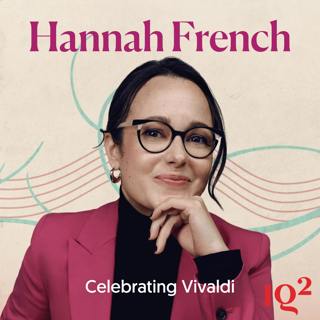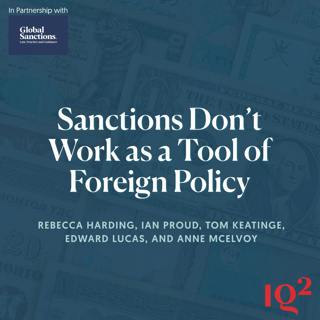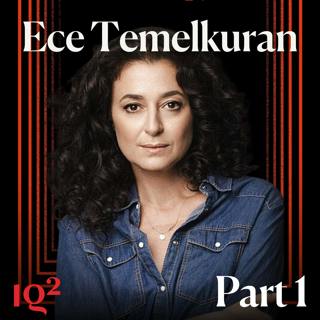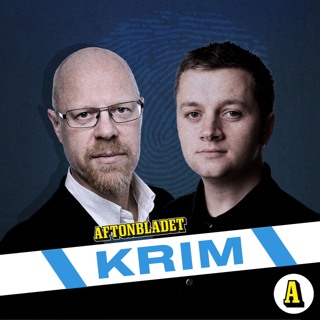
Does modern medicine need to drop the distinction between mental and physical health? With Professor Edward Bullmore
For centuries, mental and physical health have been divided - disorders of the mind and body have been treated as if they were poles apart. This deep-rooted division has shaped medicine, psychiatry, and society. But what if this mind/body split is not only outdated - but dangerously misleading? Psychiatrist and neuroscientist Professor Edward Bullmore is Regius Professor of Psychiatry at Kings College London. For this episode, he sat down with Dr Güneş Taylor to explore the historical and philosophical reasons for our separation of mind and body in modern medicine. With a focus on the dark history of our treatment of schizophrenia, from 17th century medicine to the emergence of psychiatry in the 19th century, to the eugenics movement of Nazi Germany, he shows how the modern foundations of psychiatry were established, and how new scientific discoveries can help revolutionise how we treat mental illness. The Divided Mind: A New Way of Thinking About Mental Health by Professor Edward Bullmore is available to buy now. If you'd like to become a Member and get access to all our full conversations, plus all of our Members-only content, just visit intelligencesquared.com/membership to find out more. For £4.99 per month you'll also receive: - Full-length and ad-free Intelligence Squared episodes, wherever you get your podcasts - Bonus Intelligence Squared podcasts, curated feeds and members exclusive series - 15% discount on livestreams and in-person tickets for all Intelligence Squared events ... Or Subscribe on Apple for £4.99: - Full-length and ad-free Intelligence Squared podcasts - Bonus Intelligence Squared podcasts, curated feeds and members exclusive series … Already a subscriber? Thank you for supporting our mission to foster honest debate and compelling conversations! Visit intelligencesquared.com to explore all your benefits including ad-free podcasts, exclusive bonus content and early access. … Subscribe to our newsletter here to hear about our latest events, discounts and much more. https://www.intelligencesquared.com/newsletter-signup/ Learn more about your ad choices. Visit podcastchoices.com/adchoices Learn more about your ad choices. Visit podcastchoices.com/adchoices
24 Nov 47min

Is Vivaldi Still the Soundtrack of the Seasons? With Dr Hannah French
Can music help us notice nature more deeply? In this episode, Dr Leah Broad speaks to broadcaster and author Dr Hannah French about the enduring influence and legacy of Vivaldi’s Four Seasons. This year is the 300th anniversary of Vivaldi’s Four Seasons. It’s therefore the perfect occasion for Dr Hannah French to explore the seasons as Vivaldi would have experienced them. Whether it's the song of local birds or an impending storm, Vivaldi’s Four Seasons intimate relationship with nature remains a source of inspiration for many musicians, authors and artists. Once an academic and baroque flautist, Dr Hannah French now presents BBC Radio 3’s Early Music Show, Saturday Breakfast Show, and live concerts including the BBC Proms. Her first book was Sir Henry Wood Champion of J.S. Bach. Her latest book is The Rolling Year: Listening to the Seasons with Vivaldi. --- If you'd like to become a Member and get access to all our full conversations, plus all of our Members-only content, just visit intelligencesquared.com/membership to find out more. For £4.99 per month you'll also receive: - Full-length and ad-free Intelligence Squared episodes, wherever you get your podcasts - Bonus Intelligence Squared podcasts, curated feeds and members exclusive series - 15% discount on livestreams and in-person tickets for all Intelligence Squared events ... Or Subscribe on Apple for £4.99: - Full-length and ad-free Intelligence Squared podcasts - Bonus Intelligence Squared podcasts, curated feeds and members exclusive series … Already a subscriber? Thank you for supporting our mission to foster honest debate and compelling conversations! Visit intelligencesquared.com to explore all your benefits including ad-free podcasts, exclusive bonus content and early access. … Subscribe to our newsletter here to hear about our latest events, discounts and much more. https://www.intelligencesquared.com/newsletter-signup/ Learn more about your ad choices. Visit podcastchoices.com/adchoices Learn more about your ad choices. Visit podcastchoices.com/adchoices
23 Nov 1h 1min

What Stories Are Written in The Rock Beneath Us? With Dr Anjana Khatwa
How does the Earth remember its own history? In this episode, Professor Caroline Dodds Pennock speaks to award-winning Earth Scientist Dr Anjana Khatwa about the deep stories hidden within our landscapes. Dr Khatwa discusses how rocks and minerals are more than just passive objects underneath our feet. Rather, they are archives of time, memory, climate, catastrophe and life itself. Through their material fortitude, rocks are tableaus of indigenous voices, ancient civilisations and other communities and cultures that have been silenced over time. For Dr Khatwa, rocks are both the storytellers of our history – marking geo-political borders and boundaries physically – and the very material which we use to construct our societies, through industry, through war and migration. But Dr Khatwa also highlights the importance of connecting with our local geology and natural landscape. Not only is it essential to preserve the environment around us, but to uncover its secrets and its histories so as to better understand ourselves. Dr Anjana Khatwa is an award-winning Earth Scientist specialising in bringing stories about the origins and formation of natural landscapes to life for a wide range of audiences. She has made numerous appearances on various BBC programmes, on Channel 5, More 4, ITV and many more. Her debut non-fiction book, The Whispers of Rock: Stories from the Earth, is a global story of how rocks have not only shaped our world but also our lives. If you'd like to become a Member and get access to all our full conversations, plus all of our Members-only content, just visit intelligencesquared.com/membership to find out more. For £4.99 per month you'll also receive: - Full-length and ad-free Intelligence Squared episodes, wherever you get your podcasts - Bonus Intelligence Squared podcasts, curated feeds and members exclusive series - 15% discount on livestreams and in-person tickets for all Intelligence Squared events ... Or Subscribe on Apple for £4.99: - Full-length and ad-free Intelligence Squared podcasts - Bonus Intelligence Squared podcasts, curated feeds and members exclusive series … Already a subscriber? Thank you for supporting our mission to foster honest debate and compelling conversations! Visit intelligencesquared.com to explore all your benefits including ad-free podcasts, exclusive bonus content and early access. … Subscribe to our newsletter here to hear about our latest events, discounts and much more. https://www.intelligencesquared.com/newsletter-signup/ Learn more about your ad choices. Visit podcastchoices.com/adchoices Learn more about your ad choices. Visit podcastchoices.com/adchoices
21 Nov 33min

Debate: Sanctions Don’t Work as a Tool of Foreign Policy
In partnership with GlobalSanctions.com, the world’s leading online resource for up to the minute information on sanctions and export controls worldwide. Sanctions have become one of the most widely used tools in modern foreign policy, imposed not only on states but also on individual leaders, oligarchs and corporations. From trade embargoes to asset freezes and travel bans, sanctions are deployed in response to everything from territorial aggression to human rights abuses. But do they actually work? Sanctions sceptics argue that they rarely achieve their goals and often inflict suffering on ordinary people while strengthening authoritarian regimes. Far from making unsavoury governments change course, they say, sanctions are little more than virtue signalling, allowing our leaders to appear resolute without doing the harder work of diplomacy or long-term strategic thinking. Proponents of sanctions counter that, when carefully targeted, sanctions can pressure both states and individuals without harming wider populations. Measures such as trade restrictions, freezing personal assets, grounding private jets and restricting access to international financial systems, they say, can deter bad behaviour, disrupt illicit networks and signal international resolve. Rather than abandoning sanctions altogether, we should focus on using them more intelligently and in conjunction with broader diplomatic strategies. Do sanctions work, or are they just political theatre? Learn more about your ad choices. Visit podcastchoices.com/adchoices
19 Nov 1h 24min

How does a nation’s language shape its identity? Hannah Kent on her year in Iceland
When Australian writer Hannah Kent first travelled to Iceland at the age of 17, she had never seen snow before, and didn’t speak a word of Icelandic. Living in a remote part of Iceland during the dark winter, she fell in love with the country, its landscape and its people. This experience inspired her bestselling novel, Burial Rites. She has now returned to the country that formed her identity as a writer, with a new memoir, Always Home, Always Homesick. For this episode, she spoke to host Danielle Sands about her deep love of Iceland’s landscape, its traditions and its people, how you can understand the history and culture of a country through its language, and how learning a new language can alter and enrich a writer’s own identity. Hannah Kent is the author of Burial Rites, Good People and Devotion. Her memoir about her lifelong connection to Iceland, Always Home, Always Homesick, is out now. If you'd like to become a Member and get access to all our full conversations, plus all of our Members-only content, just visit intelligencesquared.com/membership to find out more. For £4.99 per month you'll also receive: - Full-length and ad-free Intelligence Squared episodes, wherever you get your podcasts - Bonus Intelligence Squared podcasts, curated feeds and members exclusive series - 15% discount on livestreams and in-person tickets for all Intelligence Squared events ... Or Subscribe on Apple for £4.99: - Full-length and ad-free Intelligence Squared podcasts - Bonus Intelligence Squared podcasts, curated feeds and members exclusive series … Already a subscriber? Thank you for supporting our mission to foster honest debate and compelling conversations! Visit intelligencesquared.com to explore all your benefits including ad-free podcasts, exclusive bonus content and early access. … Subscribe to our newsletter here to hear about our latest events, discounts and much more. https://www.intelligencesquared.com/newsletter-signup/ Learn more about your ad choices. Visit podcastchoices.com/adchoices Learn more about your ad choices. Visit podcastchoices.com/adchoices
17 Nov 45min

How To Lose Your Country, with Ece Temelkuran (Part Two)
Temelkuran is a brilliant writer, finding humour, hope and humanity in the darkest corners of our current malaise.’ – BRIAN ENO Ece Temelkuran is the award winning Turkish writer and author who was forced into exile for her critical views of President Erdoğan. She has long signalled the alarm that not only her home country of Türkiye but the whole democratic world is steadily sleepwalking into authoritarianism. Her 2019 book How To Lose A Country was an impassioned warning to the world that populism and nationalism don’t march fully-formed into government; they creep. In October 2025, she came to Intelligences Squared to discuss how we can spot the early-warning signs of authoritarianism, defend democracy and learn the lessons of resistance from Eastern Europe to South America. Temelkuran also offered an alternative path and described how democracy can survive the digital age. Learn more about your ad choices. Visit podcastchoices.com/adchoices
16 Nov 33min

How To Lose Your Country, with Ece Temelkuran (Part One)
Temelkuran is a brilliant writer, finding humour, hope and humanity in the darkest corners of our current malaise.’ – BRIAN ENO Ece Temelkuran is the award winning Turkish writer and author who was forced into exile for her critical views of President Erdoğan. She has long signalled the alarm that not only her home country of Türkiye but the whole democratic world is steadily sleepwalking into authoritarianism. Her 2019 book How To Lose A Country was an impassioned warning to the world that populism and nationalism don’t march fully-formed into government; they creep. In October 2025, she came to Intelligences Squared to discuss how we can spot the early-warning signs of authoritarianism, defend democracy and learn the lessons of resistance from Eastern Europe to South America. Temelkuran also offered an alternative path and described how democracy can survive the digital age. Learn more about your ad choices. Visit podcastchoices.com/adchoices
14 Nov 37min

Why Are We So Addicted to Everything? With Nicklas Brendborg
Are we living in a world designed to hijack our brains? In this episode, Dr Emma Yhnell speaks to international best-selling author Nicklas Brendborg about how supernormal stimuli have become the norm in modern society. Whether it's food or our screens, Nicklas Brendborg argues that we’re living in an environment that is engineered to keep us hooked. Over centuries, through our agricultural practices we perfected food that appeals to our most basic taste receptors. But we are now in the age of ultra-processed food, which is optimised to be addictive. The same goes for our screens, where colourful social media content hooks us and the constant dopamine hits that are designed to be overwhelming make it hard to unplug from the digital world. It is these habits that are fueling modern society’s epidemics of addiction, loneliness and increasing mental health problems. But Nicklas Brendborg argues that by understanding our biology we can learn to manage our habits, resist the hijacking of our natural instincts, and learn to live with more intention, focus and presence. Nicklas Brendborg is a Danish scientist and author. His international bestseller Jellyfish Age Backwards has been translated to more than 30 languages and was shortlisted for the Royal Society Science Book Prize. He is the youngest ever author to have been shortlisted for this award. Brendborg holds bachelor’s and master’s degrees in molecular biomedicine and biotechnology from the University of Copenhagen and is now a PhD student in molecular biology. He has been recognised by, among others, the Novo Nordisk International Talent Programme and the Novo Nordisk Scholarship Programme. His latest book is Super Stimulated: How Our Biology Is Being Manipulated to Create Bad Habits – and What We Can Do About It. If you'd like to become a Member and get access to all our full conversations, plus all of our Members-only content, just visit intelligencesquared.com/membership to find out more. For £4.99 per month you'll also receive: - Full-length and ad-free Intelligence Squared episodes, wherever you get your podcasts - Bonus Intelligence Squared podcasts, curated feeds and members exclusive series - 15% discount on livestreams and in-person tickets for all Intelligence Squared events ... Or Subscribe on Apple for £4.99: - Full-length and ad-free Intelligence Squared podcasts - Bonus Intelligence Squared podcasts, curated feeds and members exclusive series … Already a subscriber? Thank you for supporting our mission to foster honest debate and compelling conversations! Visit intelligencesquared.com to explore all your benefits including ad-free podcasts, exclusive bonus content and early access. … Subscribe to our newsletter here to hear about our latest events, discounts and much more. https://www.intelligencesquared.com/newsletter-signup/ Learn more about your ad choices. Visit podcastchoices.com/adchoices/ Learn more about your ad choices. Visit podcastchoices.com/adchoices
12 Nov 47min






















